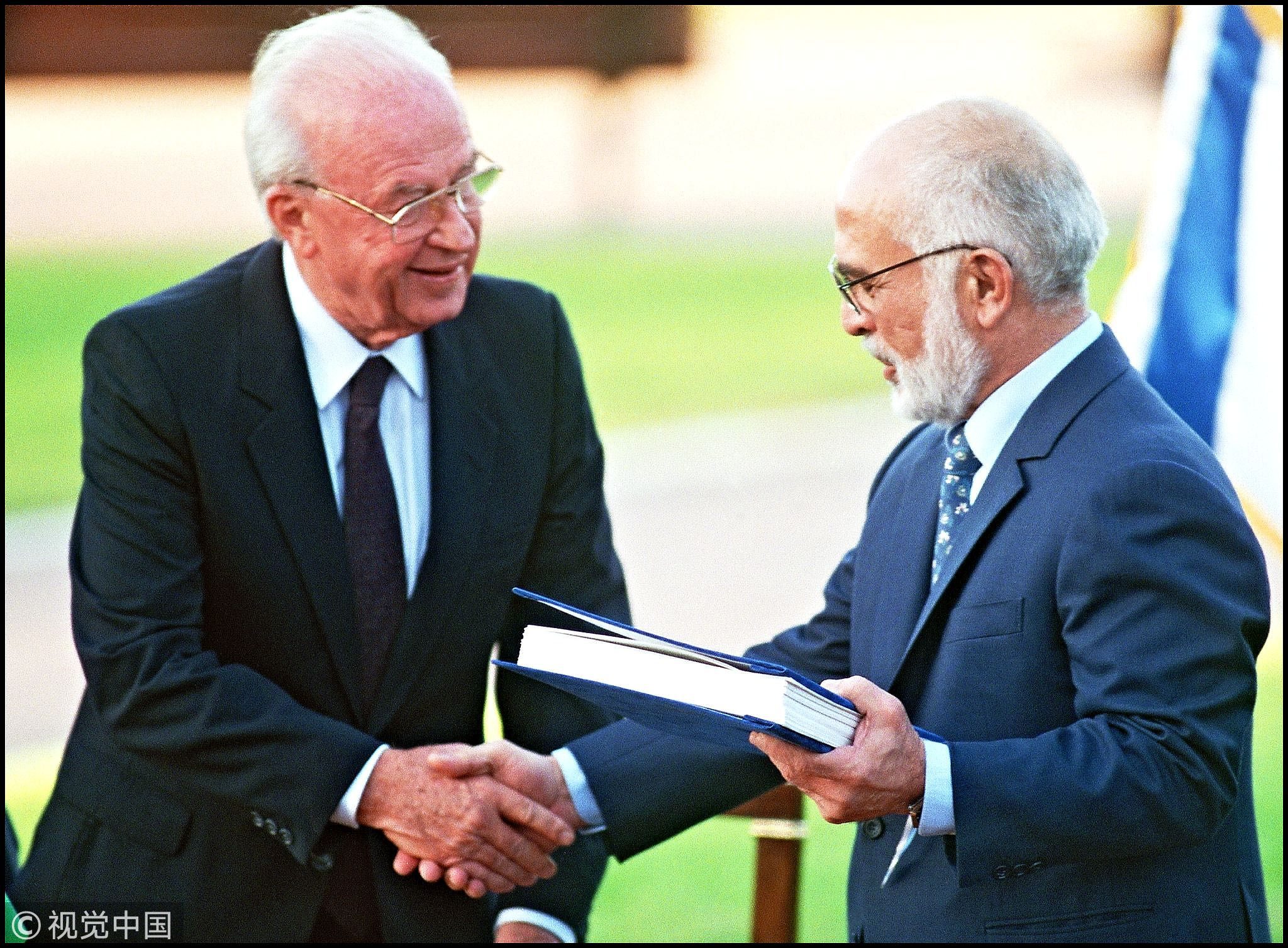
Opinions
13:07, 23-Oct-2018
China-Israel cooperation embraces a win-win future
Updated
13:07, 26-Oct-2018
Wang Jin

Editor's note: Wang Jin is a research fellow at the Charhar Institute and a PhD candidate at the School of Political Science, University of Haifa, Israel. The article reflects the author's opinion, and not necessarily the views of CGTN.
As a key state located along the route of the Belt and Road Initiative (BRI), Israel is an important partner of China with attractive features, such as a unique geographic location, stable political structure, highly developed economic system, and advanced science and technology. The China-Israel bilateral relationship is witnessing a new peak with Chinese Vice President Wang Qishan's visit to Tel Aviv.
Israel was the first Middle East state to recognize the People's Republic of China on January 9, 1950, but the two countries did not establish diplomatic ties until 1992 when China was attempting to strike a balance between Tel Aviv and the Arab world.
China believed that both Chinese and Jewish people originate from ancient civilizations and suffered hardships in the Second World War. Against this backdrop, during the 1955 Bandung Asian–African Conference, China expressed support for the Palestinian people's right of self-determination, but refrained from denying Israel's right to exist in the region.

Jordan's King Hussein Ibn Talal (R) and Israeli Premier Yitzhak Rabin (L) shake hands after they exchanged the documents of the Peace Treaty at Beit Gabriel conference center on the southern shore of the Sea of Galilee in 1994. /VCG Photo
Jordan's King Hussein Ibn Talal (R) and Israeli Premier Yitzhak Rabin (L) shake hands after they exchanged the documents of the Peace Treaty at Beit Gabriel conference center on the southern shore of the Sea of Galilee in 1994. /VCG Photo
Communications between China and Israel have significantly increased since the late 1970s. In 1982 China started to allow Israeli scholars to visit China on behalf of personal identities. In 1985, an Israeli economic delegation visited China, and in the same year, a Chinese agricultural delegation paid a visit to Israel.
Chinese and Israeli diplomats held several meetings in the following years and reached consensus on establishing diplomatic relations. In 1990, China's state-owned Chinese International Travel Agency set up its office in Tel Aviv.
With the Madrid Conference convening in 1991, obstacles in normalizing China-Israel relations diminished. The same year, then Israeli Defense Minister Moshe Arens reportedly paid a secret official visit to China to discuss the establishment of China-Israel diplomatic ties and expansion of their military cooperation.
In the following year, the Joint Communique on the Establishment of China-Israel Diplomatic Relations was signed between the two countries.
After the Belt and Road Initiative was put forward by Chinese President Xi Jinping in 2013, the China-Israel relationship witnessed a new wave of achievements. The airline flights from China to Israel have become more frequent.

A Chinese craftsman teaches Israeli students to paint on a guard in Tel Aviv. /VCG Photo
A Chinese craftsman teaches Israeli students to paint on a guard in Tel Aviv. /VCG Photo
The first international airline service opened between Beijing and Tel Aviv in 1993. The frequency of direct airline services between Beijing and Tel Aviv increased to three times a week, while direct airline services from Hong Kong to Tel Aviv increased to six times a week. In 2016, China's Hainan Airlines opened its direct flight route from Beijing to Tel Aviv.
With the intensifying China-Israel communications, an increasing number of Israelis are interested in learning Chinese. Mutual understandings between Chinese and Israelis have deepened accordingly. A short video made by the Israeli Consulate in Shanghai, "Thank You Shanghai," is a demonstration of the China-Israel friendship that has moved many people from both countries.
The China-Israel Joint Committee on Innovation Cooperation has become an important platform for Chinese and Israeli high-tech and small- and micro- enterprises to communicate and cooperate. China views Israel as an excellent source of development experience.
An increasing number of Chinese companies, such as Baidu, Lenovo, Qihoo 360 and Pingan, are seeking business opportunities in Israel. Some Chinese firms have also signed infrastructure construction contracts with their Israeli counterparts.
Having gradually realized that Chinese companies are reliable partners, Israeli firms are now seeking more cooperation opportunities with China.
Wang Qishan's Israel visit will surely stimulate Beijing-Tel Aviv cooperation. Under the BRI, the two countries are embracing a win-win future.
(If you want to contribute and have specific expertise, contact us at opinions@cgtn.com.)

SITEMAP
Copyright © 2018 CGTN. Beijing ICP prepared NO.16065310-3
Copyright © 2018 CGTN. Beijing ICP prepared NO.16065310-3